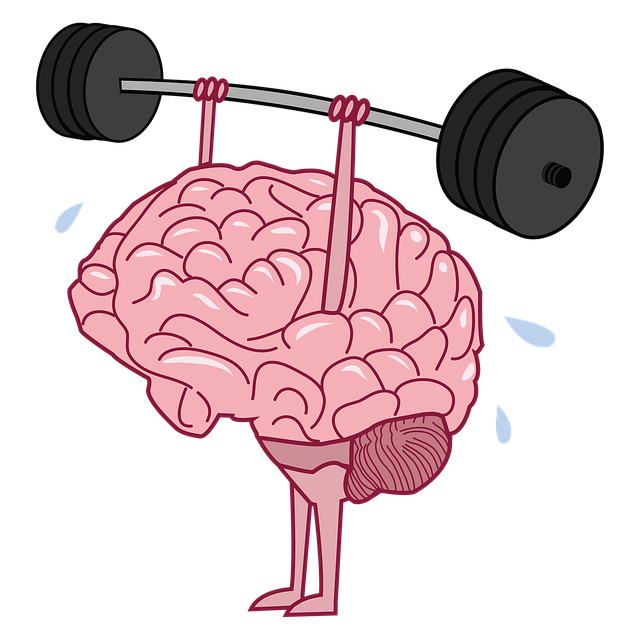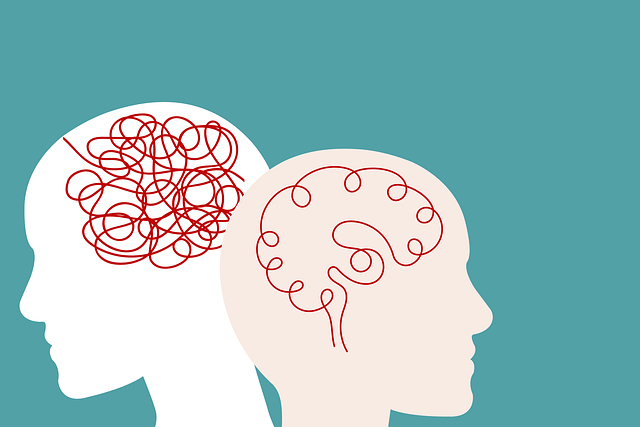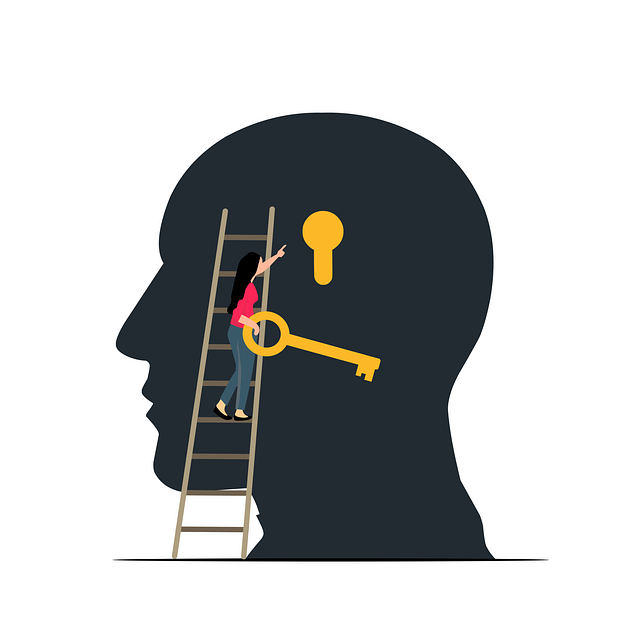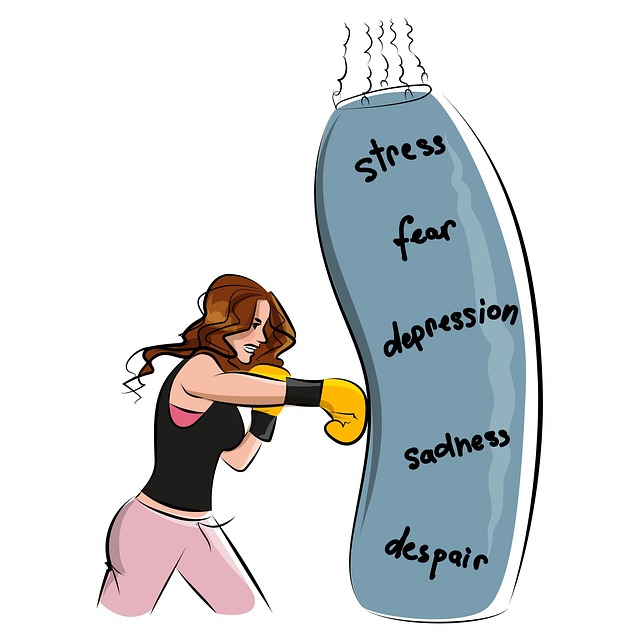Lafayette Adjustment Disorder (LAD) is a condition requiring professional help for its management. Therapy focuses on techniques like self-awareness, mindfulness, and cognitive reframing to improve coping mechanisms, self-esteem, and emotional balance. Cognitive Behavioral Therapy (CBT), an evidence-based approach, targets negative thought patterns and offers practical tools. Mindfulness and meditation enhance emotional intelligence and stress management. Lifestyle adjustments, including balanced diets, exercise, and quality sleep, are vital for mood stabilization. Alternative therapies like art, music, and nature immersion provide creative outlets for expression and processing emotions, complementing traditional LAD therapy.
Mood regulation is a vital skill for navigating life’s challenges. This article explores various strategies to help manage emotions, focusing on both traditional and alternative approaches. We delve into cognitive behavioral therapy (CBT) as a powerful tool for treating conditions like Lafayette Adjustment Disorder. Additionally, discover mindfulness techniques, lifestyle adjustments, and innovative therapies through art, music, and nature connection, offering holistic paths to emotional balance and stability.
- Understanding Mood Regulation and Lafayette Adjustment Disorder
- Cognitive Behavioral Therapy: A Powerful Tool for Emotional Balance
- Mindfulness and Meditation Techniques to Calm the Mind
- Lifestyle Adjustments: Nutrition, Exercise, and Sleep for Mood Stabilization
- Alternative Therapies: Exploring Art, Music, and Nature Connections
Understanding Mood Regulation and Lafayette Adjustment Disorder

Understanding Mood Regulation is crucial for navigating life’s challenges and maintaining overall well-being. Moods are natural responses to internal and external stimuli, but when they become distorted or persistent, it can lead to conditions like Lafayette Adjustment Disorder (LAD). LAD, characterized by significant mood swings and difficulties adjusting to stressful situations, often requires professional intervention. Therapy plays a pivotal role in LAD treatment, employing various techniques tailored to the individual’s needs.
Lafayette Adjustment Disorder therapy leverages strategies such as self-awareness exercises, mindfulness practices, and cognitive reframing to help individuals develop healthier coping mechanisms. By fostering self-esteem improvement and applying mind over matter principles, therapy empowers individuals to better regulate their emotions, adapt to change, and lead more fulfilling lives.
Cognitive Behavioral Therapy: A Powerful Tool for Emotional Balance

Cognitive Behavioral Therapy (CBT) is a highly effective approach to achieving emotional balance and managing mood disorders, including Lafayette Adjustment Disorder. This therapeutic technique focuses on identifying and changing negative thought patterns and behaviors that contribute to distressing emotions. CBT empowers individuals to take control of their mental health by providing them with practical tools and strategies to cope with challenging situations.
By participating in CBT, individuals learn to recognize triggers for their mood shifts and develop healthier responses. This involves exploring underlying beliefs, distorting these thoughts, and replacing them with more realistic, positive alternatives. Moreover, CBT incorporates techniques like mindfulness meditation, which has been shown to reduce symptoms of anxiety and depression, significantly improving overall mental health outcomes. Combined with comprehensive Mental Health Education Programs Design and effective Risk Management Planning for Mental Health Professionals, CBT offers a holistic approach to maintaining emotional well-being.
Mindfulness and Meditation Techniques to Calm the Mind

Mindfulness and meditation are powerful tools to calm the mind and regulate moods. These practices have gained significant attention in the field of Lafayette Adjustment Disorder Therapy as they offer a natural and effective way to manage emotional distress. By focusing on the present moment, individuals can learn to observe their thoughts and feelings without judgment.
Compassion cultivation practices, often integrated into mindfulness meditation, encourage self-acceptance and empathy towards oneself and others. This enhanced emotional intelligence can significantly improve stress management skills, allowing individuals to navigate challenging situations with more resilience. Through regular practice, one can develop a deeper sense of inner peace and stability, making it easier to regulate moods and maintain mental balance.
Lifestyle Adjustments: Nutrition, Exercise, and Sleep for Mood Stabilization

Maintaining a stable mood is an integral part of overall well-being, and lifestyle adjustments play a significant role in this process. Nutrition, exercise, and sleep are essential pillars for supporting emotional health. A balanced diet rich in essential nutrients can significantly impact brain chemistry, helping to regulate moods and reduce symptoms of depression and anxiety. Incorporating regular physical activity not only boosts energy levels but also releases endorphins, known as ‘feel-good’ hormones, which promote a positive mindset.
Additionally, prioritizing quality sleep is crucial for mood stabilization. Sleep disorders are often linked to emotional instability and can exacerbate conditions like Lafayette Adjustment Disorder. Adequate rest allows the body to recover and rebalance, enhancing resilience against stress and promoting better mental clarity. Combining these lifestyle changes with therapy or trauma support services can provide comprehensive care, leading to improved anxiety relief and a confidence boost for individuals seeking emotional well-being.
Alternative Therapies: Exploring Art, Music, and Nature Connections

Alternative therapies offer a unique approach to mood regulation, providing individuals with creative outlets and natural connections for improved mental wellness. Art therapy, for instance, encourages self-expression through various art forms, allowing people to explore and communicate their emotions in ways that traditional talk therapy might not always achieve. This can be particularly beneficial for those dealing with conditions like Lafayette Adjustment Disorder, offering a non-verbal means of processing and releasing feelings.
Music and nature also play significant roles in enhancing mood management. Listening to calming music or immersing oneself in natural settings has been shown to reduce stress and anxiety, fostering self-esteem improvement and overall mental health. Incorporating these alternative practices into one’s routine can complement traditional therapy and mental wellness coaching programs development, providing a holistic approach to caring for one’s emotional well-being.
In addressing mood regulation strategies, from cognitive behavioral therapy to alternative therapies like art and nature connections, individuals can find effective tools to manage conditions like Lafayette Adjustment Disorder. By integrating mindfulness, lifestyle adjustments, and exploration of various therapeutic methods, one can achieve emotional balance and improved overall well-being. These approaches offer a holistic path to stabilising moods and enhancing the quality of life.













